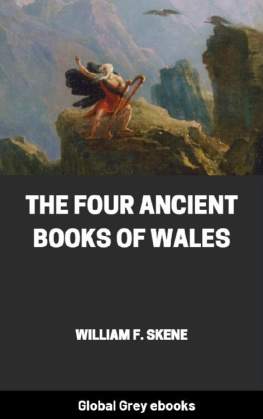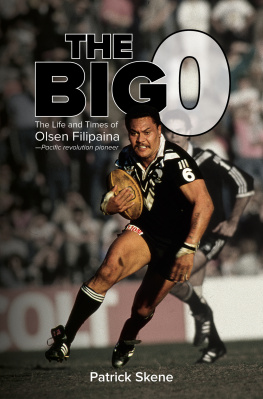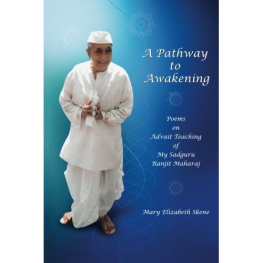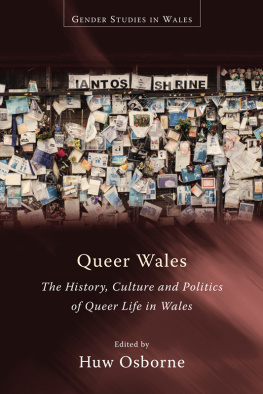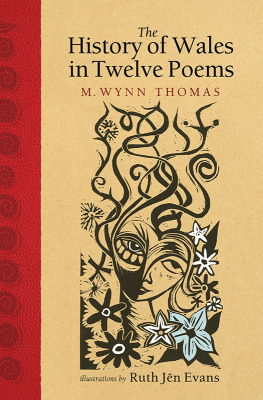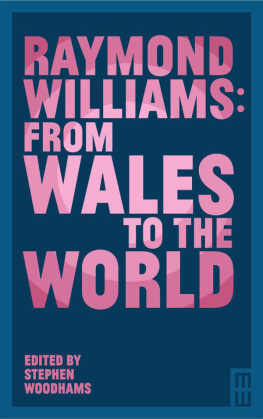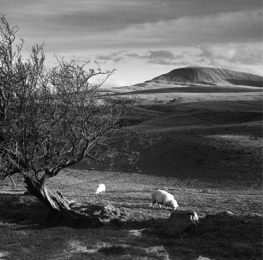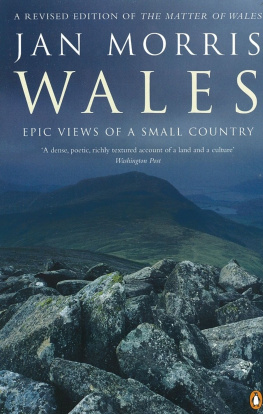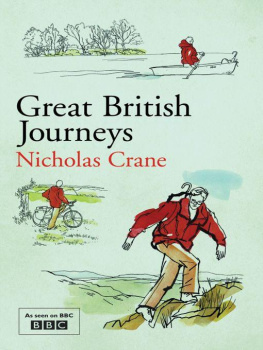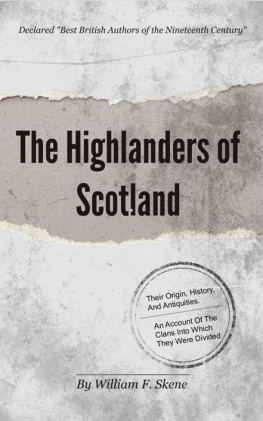William F. Skene - The Four Ancient Books of Wales
Here you can read online William F. Skene - The Four Ancient Books of Wales full text of the book (entire story) in english for free. Download pdf and epub, get meaning, cover and reviews about this ebook. year: 2019, publisher: Global Grey ebooks, genre: Art. Description of the work, (preface) as well as reviews are available. Best literature library LitArk.com created for fans of good reading and offers a wide selection of genres:
Romance novel
Science fiction
Adventure
Detective
Science
History
Home and family
Prose
Art
Politics
Computer
Non-fiction
Religion
Business
Children
Humor
Choose a favorite category and find really read worthwhile books. Enjoy immersion in the world of imagination, feel the emotions of the characters or learn something new for yourself, make an fascinating discovery.
- Book:The Four Ancient Books of Wales
- Author:
- Publisher:Global Grey ebooks
- Genre:
- Year:2019
- Rating:4 / 5
- Favourites:Add to favourites
- Your mark:
- 80
- 1
- 2
- 3
- 4
- 5
The Four Ancient Books of Wales: summary, description and annotation
We offer to read an annotation, description, summary or preface (depends on what the author of the book "The Four Ancient Books of Wales" wrote himself). If you haven't found the necessary information about the book — write in the comments, we will try to find it.
The Four Ancient Books of Wales — read online for free the complete book (whole text) full work
Below is the text of the book, divided by pages. System saving the place of the last page read, allows you to conveniently read the book "The Four Ancient Books of Wales" online for free, without having to search again every time where you left off. Put a bookmark, and you can go to the page where you finished reading at any time.
Font size:
Interval:
Bookmark:
THE
FOUR ANCIENT BOOKS OF WALES
CONTAINING
THE CYMRIC POEMS ATTRIBUTED TO THE BARDS OF
THE SIXTH CENTURY
BY
WILLIAM F. SKENE
1868
The Four Ancient Books Of Wales By William F. Skene.
This edition was created and published by Global Grey
GlobalGrey 2019
Get more free ebooks at

globalgreyebooks.com

Map of Prydyn or Y Gogled

Map Detail 1

Map Detail 2
THE dissolution of the religious houses in Wales in the reign of Henry the Eighth, and the dispersion of their libraries, led to many Welsh MSS., which had been preserved in them, passing into the hands of private individuals; and collections of Welsh MSS. soon began to be formed by persons who took an interest in the history and literature of their country.
The principal collectors in North Wales were Mr. Jones of Gelly Lyvdy, whose collection was formed between the years 1590 and 1630, and Mr. Robert Vaughan of Hengwrt, author of a work termed British Antiquities Revived, published in 1662, who died at Hengwrt four years after, in 1666; and in South Wales, William Herbert, Earl of Pembroke, who formed a collection at Raglan Castle in 1590; and Sir Edward Mansel, whose father had received a gift of the priory of Margam in Glamorgan, in 1591.
The collections of Mr. Jones and Mr. Vaughan became united at Hengwrt, in arrangement having been made between them that the MSS. collected by each should become the property of the survivor. Mr. Jones having predeceased Mr. Vaughan, the united collection, consisting of upwards of 400 MSS., remained at Hengwrt till within the last few years, when it was bequeathed by Sir Robert Vaughan of Hengwrt to W. W. E. Wynne, Esq. of Peniarth, in whose possession it now is.
In the following century various collections were made, and among others some valuable MSS. became the property of Jesus College, Oxford. The collection of the Earl of Pembroke at Raglan Castle was destroyed by fire in the time of Oliver Cromwell; and a similar fate overtook two of those later collections, which had become the property of Sir Watkin Williams Wynne, and were preserved at Wynnstay, but which were likewise destroyed by fire. Other collections passed into the British Museum, and the principal collections of Welsh MSS. are now the Hengwrt collection at Peniarth, those in the British Museum, the MSS. at Jesus College, and those belonging to Lord Mostyn, Mr. Panton of Plas Gwyn, and others.
In the Hengwrt collection were preserved three ancient MSS., termed the Black Book of Caermarthen, the Book of Aneurin, and the Book of Taliessin, containing a considerable collection of Welsh poetry bearing marks of antiquity; and in the, library of Jesus College is a MS. which contains similar poems, termed the Red Book of Hergest. These poems are some of a historic character, and others not so, and are attributed, either by their rubric, by the title of the MS., or by tradition, to four bards termed Myrddin, Aneurin, Taliessin, and Llywarch Hen, who are supposed to have lived in the sixth century.
Two of these MSS. are still in the Hengwrt collection, and of one of them we know the history: the Black Book of Caermarthen belonged to the Priory of Black Canons at Caermarthen, and was given by the Treasurer of the Church of St. Davids to Sir John Price, a native of Breconshire, who was one of the commissioners appointed by King Henry the Eighth; the other is the Book of Taliessin, and it is not known how it was acquired.
The Book of Aneurin is now the property of Sir Thomas Phillipps of Middlehill.
The Red Book of Hergest is said to have been so termed from its having been compiled for the Vaughans of Hergest Court, Herefordshire, and seems to have come to Oxford from the Margam Collection in South Wales.
It is these four MSS.--the Black Book of Caermarthen, written in the reign of Henry the Second (1154-1189); the Book of Aneurin, a MS. of the latter part of the thirteenth century; the Book of Taliessin, a MS. of the beginning of the fourteenth century; and the Red Book of Hergest, a MS. compiled at different times in the fourteenth and fifteenth centuries--that are here termed THE FOUR ANCIENT BOOKS OF WALES, and it is with the ancient poems contained in these four MSS. that we have now to do.
Numerous transcripts of these poems are to be found in other Welsh MSS., but undoubtedly it is in these four MSS. that the most ancient. texts of the poems are to be found; and, in most cases, those in the other MSS. are not independent texts, but have obviously, with more or less variation, been transcribed from these. The contents of these MSS. remained little known till the publication of the Archologia Britannica in 1707, by Edward Lhuyd, who had examined all the collections which were accessible, and the account which he included in his work of the Welsh MSS. attracted some attention towards them, but none of the poems were printed till the middle of the century, when the publication of the poems of Ossian by James Macpherson, and the sudden popularity they acquired, gave a temporary value to Celtic poetry, and led to a desire on the part of the Welsh to show that they were likewise in possession of a body of native poems not less interesting than the Highland, and with better claims to authenticity. In 1764, the Rev. Evan Evans published his Specimens of the Poetry of the Ancient Welsh Bards; and though they mainly embraced poems written in the twelfth and subsequent centuries, translated in the style of Macpherson's Ossian, he annexed a Latin dissertation, De Bardis, in which he printed ten of the stanzas of the great poem of the Gododin, and a stanza from the Avallenau, as specimens of the older poems, with Latin translations. He was followed by Edward Jones, who, in his Musical and Poetical Relies of the Welsh Bards, published in 1784, printed a part of the Gododin, three of the poems of Taliessin--viz. the Battle of Argoed Llwyfain, the Battle of Gwenystrad, and the Mead song, one of the poems of Llywarch Hen, with metrical translations, and part of the Avallenau, with a more literal prose translation by Mr. Edward Williams. He was likewise assisted in his work by Dr. W. Owen, afterwards Dr. Owen Pughe, who, a few years afterwards, published five of the poems of Taliessin in the Gentleman's Magazine for the years 1789 and 1790, being the Ode to Gwallawg, the Death-Song of Owen, the Battle of Dyffryn Garant, the Battle of Gwenystrad, and the Gorchan Cynvelyn, with English translations. These translations, however, were too diffuse and too much tainted by a desire to give the passages a mystic meaning, to convey a fair idea of the real nature of the poems.
In 1792, Dr. Owen Pughe published The Heroic Elegies, and other pieces of Llywarch Hen, with a much more literal English version. The work contains a pretty complete collection of the poems attributed to Llywarch Hen, but it is not said from what MS. the text was printed, while the notes contain collations with the Black Book of Caermarthen and the Red Book of Hergest.
Next pageFont size:
Interval:
Bookmark:
Similar books «The Four Ancient Books of Wales»
Look at similar books to The Four Ancient Books of Wales. We have selected literature similar in name and meaning in the hope of providing readers with more options to find new, interesting, not yet read works.
Discussion, reviews of the book The Four Ancient Books of Wales and just readers' own opinions. Leave your comments, write what you think about the work, its meaning or the main characters. Specify what exactly you liked and what you didn't like, and why you think so.

